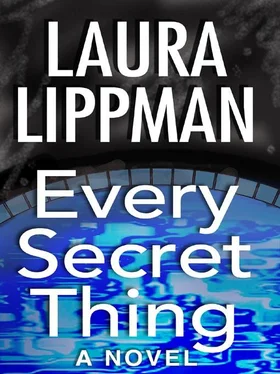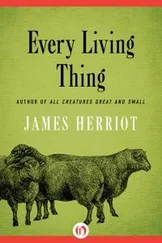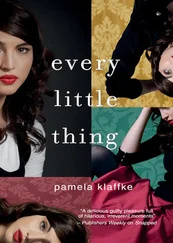So she was downtown one night a week. Just her luck, Saturday nights went cold when she arrived. The good stories, the page-one stories, now seemed to happen every other night of the week. There was nothing to do but read the wires and other newspapers, which didn’t actually interest Mira much. Mira liked the idea of newspapers, enjoyed telling people she was a reporter, but the daily product meant little to her. Her passion was hitting milestones, accumulating tangible proof of her advancement.
Now she was stuck. In this city, in the suburbs, on permanent Saturdays, in limbo. She was even between boyfriends, unusual for her. She no longer remembered why she had chosen journalism, but she remembered her determination to succeed in it. She was not going to slink off to PR. Thank God she hadn’t jumped ship in the dot-com boom, which had lured so many of her friends away, then stranded them. She was not a failure. She got lots of “good jobs” from Nostrildamus and the occasional fifty-dollar American Express gift cheque, largely in recognition of all that unpaid overtime. She was being reborn. It was just taking so damn long.
For some reason, this made her think of the story from one of the western states, where a mother had hired a rebirthing coach to help a troubled child, and they had ended up smothering the girl in her own vomit while simulating passage through the birth canal. Now that would be a good story. She could do something with that. What could she do in a city where it was just boom-boom-boom, one lowlife taking out another lowlife, and not even at the hours that fit her schedule?
The night editor’s voice interrupted her reverie: “Call for you, Jenkins.”
“Put it on 6129.”
“I know the extension,” the night editor said. He was quick to remind Mira of everything he knew-and everything she didn’t know. A few months ago, on a freezing winter night, he had ordered her to go stare at a street sign on a forlorn corner five blocks north because she had misspelled it in a brief. She had gone downstairs, hidden in the ladies’ room off the lobby, and come back a suitable interval later. “ Centre Street,” she had said, “C-E-N-T- R -E,” pretending humility, shivering a little for effect. She had checked it on the map she kept in her purse. “I won’t get it wrong again.”
“Newsroom,” she said on a sigh. “Mira Jenkins.”
“You’re a reporter?”
The very challenge in the voice, the unearned hostility, signaled trouble. The night editor must have forwarded one of the regular nuts just to play with her.
“Yes, I’m a reporter. I cover police on Saturdays, but during the week I’m out in Baltimore County.”
That should scare her caller off. Nuts always wanted to talk to the most important people, Nostrildamus or one of the metro columnists.
“How old are you?”
“I’m not sure how that’s relevant. Is there something I can help you with tonight?”
“Oh, it’s rel-e-vant.”
The husky female voice was perplexing. The syntax was ghetto, but the pronunciation was sharp, exaggerated. It reminded Mira of the way people speak after drinking, when they’re trying to convince others they aren’t drunk.
“How may I help you?” Mira repeated. She must not lose her temper with any caller, no matter how rude. One unhelpful word to the wrong person, a person who knew Nostrildamus, and she was beyond rehabilitation.
“You can help by knowing a little history. You know history?”
“I like to think I do.”
“You know local history?”
The rhythms were definitely ghetto to Mira’s ear, but she had to be careful. There were some politically connected types who spoke that way.
“Is there something I can do for you tonight?”
“A baby disappeared.”
“Yes, we’ve been following that story.” Another chore done by the day cop reporter, who had thoroughly covered the absence of leads and the Baltimore County cops’ refusal to say whether they thought this was a stranger kidnap, a domestic homicide, or something in between. Nostrildamus didn’t like the story, Mira had heard from the night editor when she came in today. “I predict,” the executive editor had said at the Friday four o’clock news meeting, “that this will prove to be a sad but small story. The media has gone overboard in its coverage of such stories, which have no true global importance. I predict”-finger held aloft-“that it is time for the pendulum to swing the other way.” No one in the meeting had the heart to suggest that Nostrildamus might see the future differently if the child had been white and middle-class, instead of a biracial girl from a marginal city neighborhood. “If you want page-one treatment from the Beacon-Light,” the night editor had told Mira, “you need to disappear from a better part of town. Preferably his.”
The night editor was just trying to make her feel better for being elbowed out of a story that had actually happened in one of her duller-than-dirt neighborhoods. Mira’s only contribution so far had been to ferry a photo downtown, which had earned her a ’trib line, even though the desk forgot to use the photo.
“You have been following,” the voice agreed. “Now you need to lead.”
“I’m not sure I-”
“You must remind people that this has happened before, that such coincidences are to be explored, not ignored.”
“I’m sorry,” Mira said, checking out the Caller ID log on the phone. But because the call had been forwarded by the night editor, it showed his extension, not the originating number. “But I don’t know what you’re talking about.”
“Now, see.” The voice was triumphant. “That’s why I asked your age, where you were from. Nobody who lived here seven years ago could forget what happened that summer.”
Seven years ago. Mira was starting her senior year at Penn, dating a boy named Bart, short for Bartholomew. He had money and ambition-the first sometimes precluded the second, she had later learned. She knew she didn’t love him, not really, and he didn’t love her, but they would use the word from time to time, to be polite. The memories came back to her, like a movie montage. The golden autumns, the tender springs, the scullers on the Schuylkill.
“Well, I didn’t live here then, and I don’t know.”
“A girl named Olivia went missing,” the voice hissed. “Judge Poole’s granddaughter. Two white girls killed her but they got juvenile time because they were white. You want to think what would happen to two black girls who killed a white judge’s granddaughter? You think the legislature would have said, ‘Oh, no, we can’t be lowering the limit, you can’t send eleven-year-olds to adult prison.’ ”
“What does this have to do with the child who’s missing now?” The very suggestion of racism put Mira off. She didn’t deny its existence in the world, but talking about it every day was like discussing anything else you couldn’t control-the weather, time, death, taxes. People needed to move on.
“They sent those white girls away seven years ago. Now they’re home and another baby’s gone. And I can guarantee you, the police are looking at those girls, trying to find out if they had anything to do with it. You call the police. You ask them if they’re talking to those girls and they’ll have to say yes if they’re not lying to you. You tell people that another child is going to die because they wouldn’t do it right the last time.”
“What-”
The line was dead.
Mira stared at the phone for a good long time.
“Hey, Bolt,” she called to the night editor, who probably wouldn’t look up if his first name were uttered. “You notice the number on that call you forwarded?”
Читать дальше












